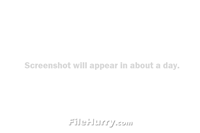-
VersionPublii 0.44.4
-
Operating SystemWindows 7 64 / Windows 8 64 / Windows 10 64 / Windows 11
-
Download Size106 MB
-
Author
-
Screenshots
Publii is built on modern web technologies such as Node.js, Electron, and Vue.js, offering a desktop-based application for creating and managing static websites. The platform aims to provide a user-friendly interface, intuitive workflows, and powerful features while eliminating the complexities associated with traditional CMS platforms. With Publii, users can create responsive, SEO-friendly websites with ease, without the need for technical expertise or coding knowledge.
Key Features
-
Desktop Application: Publii is a desktop-based application available for Windows, macOS, and Linux platforms. The desktop application provides a familiar environment for users to create and manage their websites, with an intuitive user interface and streamlined workflows.
-
Static Site Generation: Publii generates static HTML files for websites, eliminating the need for server-side processing and databases. Static websites offer improved performance, security, and scalability compared to dynamic websites, making them ideal for a wide range of use cases, including blogs, portfolios, business websites, and more.
-
Built-in Templates and Themes: Publii includes a collection of built-in templates and themes that users can choose from to customize the look and feel of their websites. The templates are designed to be responsive, SEO-friendly, and visually appealing, allowing users to create professional-looking websites without the need for design expertise.
-
Visual Editor: Publii features a visual editor that enables users to create and edit content using a WYSIWYG (What You See Is What You Get) interface. The visual editor supports drag-and-drop functionality, inline editing, and real-time previews, making it easy for users to customize their websites and see changes instantly.
-
SEO Optimization: Publii includes built-in tools for optimizing websites for search engines (SEO). Users can configure metadata, including titles, descriptions, and keywords, for individual pages and posts to improve their search engine rankings and visibility.
-
Media Management: Publii includes a media management system that allows users to upload, organize, and manage media files such as images, videos, and documents. Users can easily insert media files into their content and optimize them for web display.
Simplicity and Ease of Use
Publii is designed to be user-friendly and accessible to users of all skill levels. Its desktop-based application, visual editor, and intuitive workflows make it easy for beginners to create and manage static websites without the need for technical expertise or coding knowledge.
Performance and Security
Publii generates static HTML files for websites, offering improved performance, security, and scalability compared to dynamic websites. Static websites load faster, are less vulnerable to security threats, and require fewer server resources, making them ideal for a wide range of use cases.
Customization and Flexibility
Publii offers a wide range of customization options, including built-in templates, themes, and widgets, as well as support for custom CSS and JavaScript. Users can customize the look and feel of their websites to match their branding and design preferences, creating unique and personalized online experiences.
SEO Optimization
Publii includes built-in tools for optimizing websites for search engines, helping users improve their search engine rankings and visibility. Users can configure metadata, including titles, descriptions, and keywords, for individual pages and posts to attract more organic traffic to their websites.
Offline Editing
Publii allows users to create and edit content offline, making it convenient for users who want to work on their websites without an internet connection. Users can sync their changes with their live websites once they are back online, ensuring seamless content management.
Limited Dynamic Functionality
While Publii is suitable for creating static websites, it may not be suitable for websites that require dynamic functionality such as user authentication, e-commerce, or dynamic content generation. Users with advanced requirements may need to explore alternative solutions or integrate third-party services.
Dependency on Desktop Application
Publii is a desktop-based application, which means users need to install and use the desktop application to create and manage their websites. Users who prefer web-based or cloud-based solutions may find the desktop application restrictive.
Learning Curve for Advanced Features
While Publii is user-friendly and accessible to beginners, users may encounter a learning curve when exploring advanced features such as custom CSS, JavaScript, and template customization. Users with specific design or functionality requirements may need to invest time in learning how to leverage these features effectively.
Blogs and Personal Websites
Publii is ideal for bloggers, writers, and individuals who want to create personal websites or blogs to share their thoughts, ideas, and experiences online. Its simplicity, ease of use, and SEO optimization features make it a popular choice for creating and managing blogs.
Conclusion
Publii is a user-friendly, feature-rich content management system (CMS) that simplifies the process of creating and managing static websites. With its desktop-based application, visual editor, SEO optimization features, and customization options, Publii empowers users of all skill levels to create professional-looking websites without the need for technical expertise or coding knowledge. While Publii has strengths in its simplicity, ease of use, performance, and customization options, it also has limitations related to its dependency on the desktop application and limited dynamic functionality. Overall, Publii remains a valuable tool for individuals, businesses, and organizations seeking a hassle-free solution for building and maintaining static websites.


 Claws Mail
Claws Mail Betternet VPN
Betternet VPN Norton Definitions
Norton Definitions ConEmu
ConEmu Git for PC
Git for PC Notepad++
Notepad++ Spyder
Spyder